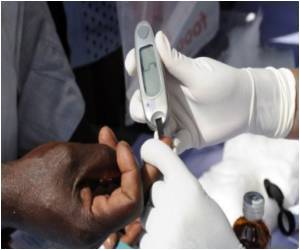New treatments for a rare and potentially lethal childhood disease that is the clinical opposite of diabetes mellitus have been discovered by University of Manchester scientists

This latest study, published in the journal Diabetes today (Wednesday), was carried out with clinical colleagues at hospitals throughout Europe and at the two referral centres for hyperinsulinism in the UK, the Royal Manchester Children's Hospital and Great Ormond Street Hospital, London.
"In healthy insulin-producing cells of the pancreas, a small group of proteins act as switches and regulate how much insulin is released," said Dr Karen Cosgrove, who led the research with Professor Mark Dunne in Manchester's Faculty of Life Sciences.
"When these proteins fail to function the cells can either release too little insulin – resulting in diabetes mellitus, or too much insulin – leading to congenital hyperinsulinism."
She continued: "CHI causes dangerously low blood sugar levels which can lead to convulsions and brain damage if not treated promptly. It is a complex condition caused by gene defects that keep the insulin-producing cells switched on when they should be switched off.
"Our group was the first to show how these gene defects led to uncontrolled insulin release in patients a number of years ago. Now we have taken the cells from patients following surgery and proven that, in some cases, it is possible to correct defects in the rogue cells."
Advertisement
One of the drugs used in their studies is currently in clinical trials to treat patients with cystic fibrosis but has not been tested in patients with CHI. The team hope that their findings will pave the way for new or similar drugs to be used in clinical trials for hyperinsulinism.
The clinical service at Royal Manchester Children's Hospital now includes state-of-the-art facilities for imaging the pancreas to detect hyperinsulinism. The clinical and academic teams work closely together within NorCHI (Northern Congenital Hyperinsulinism in Infancy service) to learn more about causes and treatments for this disease.
Source-Eurekalert















